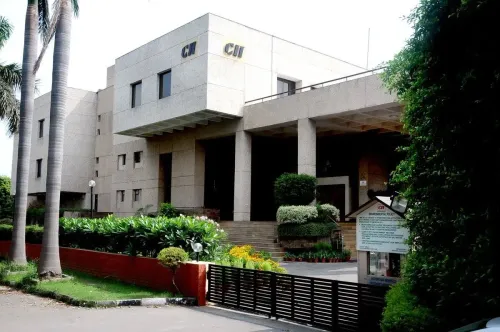Is Workforce Rationalisation Inevitable as Traditional Skillsets are Being Re-evaluated?

Synopsis
Key Takeaways
- Workforce rationalization is reshaping the IT sector.
- AI and automation are central to business operations.
- Continuous skilling is essential for future readiness.
- Collaboration among various sectors is critical.
- Specialized expertise will be increasingly in demand.
New Delhi, July 28 (NationPress) As technology firms such as TCS begin to implement layoffs affecting thousands of employees in India due to the challenges posed by AI, the IT industry's leading organization, Nasscom, announced on Monday that it expects transitions in the coming months. These changes are driven by organizations shifting towards product-focused delivery frameworks, fueled by increasing client demands for agility, innovation, and speed.
The technology sector is currently at a pivotal moment, with AI and automation becoming central to business operations.
Nasscom stated, “This transition is poised to transform conventional service delivery models, and in the short term, may result in some workforce rationalization as traditional skillsets are reassessed.”
However, in the long run, technology will continue to serve as a significant driver of growth. Each wave of disruption creates new roles, value chains, and opportunities.
As industries transform, ongoing skilling, upskilling, and cross-skilling will be vital for developing future-ready and resilient workforces, according to the industry body.
The sector has already made substantial strides in equipping its workforce for this change. By Q4 FY25, over 1.5 million professionals have received training in AI and GenAI skills at various levels.
Notably, advanced AI training programs have reached more than 95,000 employees in top-listed companies, covering certifications in AI-native cloud, embedded AI, and applied intelligence.
Nasscom emphasized that “Hiring patterns will continue to evolve, increasing the need for specialized expertise. There is no universal solution; each company will navigate this shift according to its distinct strategic requirements. What is essential is a collective commitment. Industry, academia, and government must work together more effectively to close the skills gap and prioritize talent development as a national and business necessity to maintain India’s technological leadership in the AI era.”
Meanwhile, the IT Ministry is monitoring TCS's announcement to lay off over 12,000 employees. India’s largest IT firm revealed plans to cut its workforce by 2 percent, translating to approximately 12,000 jobs in FY26.
The Nascent Information Technology Employees Senate (NITES) has also reportedly lodged an official complaint against TCS, claiming that “TCS is set to terminate thousands of employees without providing them with proper notice or prior communication to the government, which is required under current Indian labor laws.”







